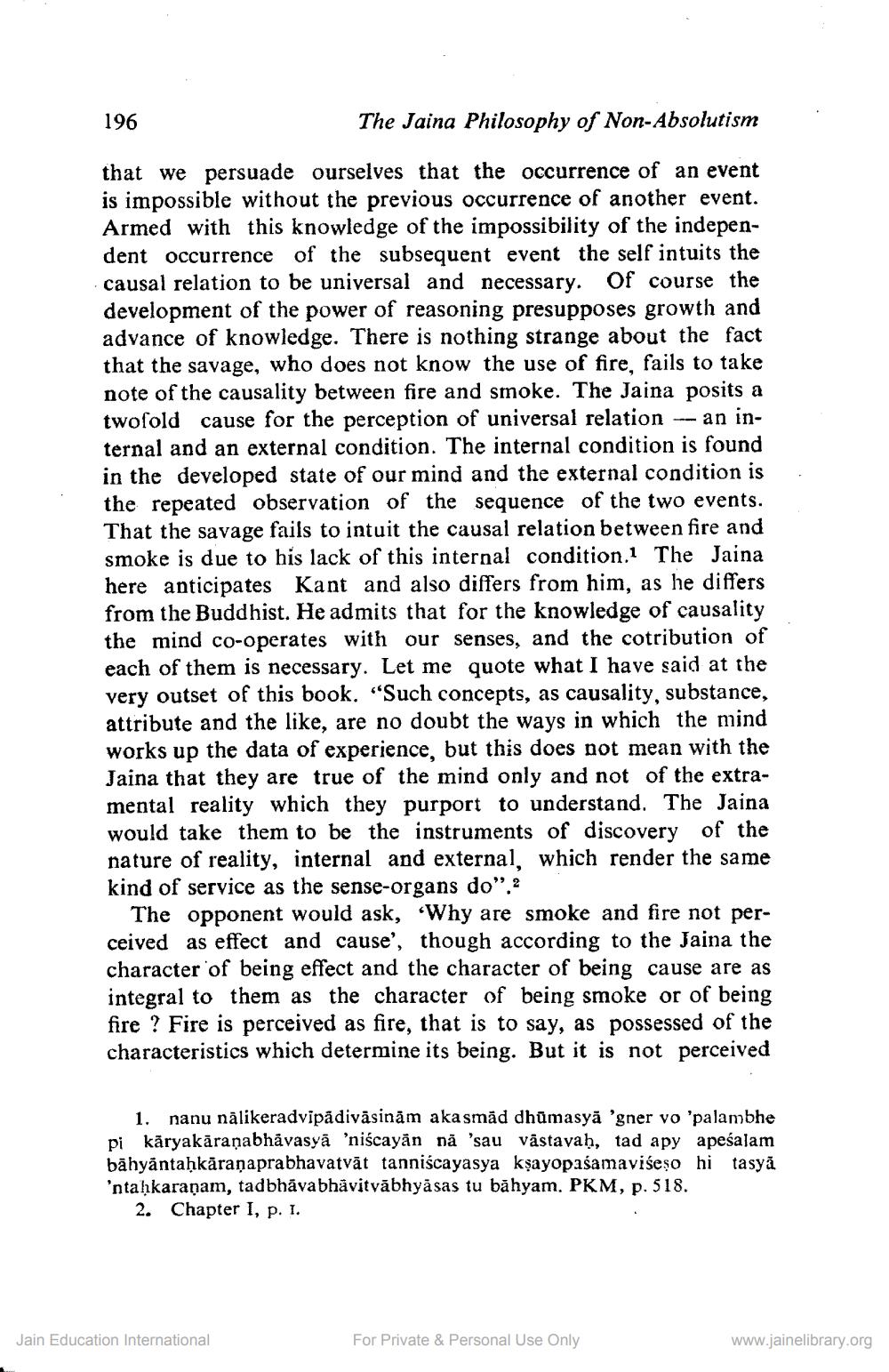________________
196
The Jaina Philosophy of Non-Absolutism
that we persuade ourselves that the occurrence of an event is impossible without the previous occurrence of another event. Armed with this knowledge of the impossibility of the independent occurrence of the subsequent event the self intuits the causal relation to be universal and necessary. Of course the development of the power of reasoning presupposes growth and advance of knowledge. There is nothing strange about the fact that the savage, who does not know the use of fire, fails to take note of the causality between fire and smoke. The Jaina posits a twofold cause for the perception of universal relation -- an in ternal and an external condition. The internal condition is found in the developed state of our mind and the external condition is the repeated observation of the sequence of the two events. That the savage fails to intuit the causal relation between fire and smoke is due to his lack of this internal condition. The Jaina here anticipates Kant and also differs from him, as he differs from the Buddhist. He admits that for the knowledge of causality the mind co-operates with our senses, and the cotribution of each of them is necessary. Let me quote what I have said at the very outset of this book. "Such concepts, as causality, substance, attribute and the like, are no doubt the ways in which the mind works up the data of experience, but this does not mean with the Jaina that they are true of the mind only and not of the extramental reality which they purport to understand. The Jaina would take them to be the instruments of discovery of the nature of reality, internal and external, which render the same kind of service as the sense-organs do".?
The opponent would ask, "Why are smoke and fire not perceived as effect and cause', though according to the Jaina the character of being effect and the character of being cause are as integral to them as the character of being smoke or of being fire ? Fire is perceived as fire, that is to say, as possessed of the characteristics which determine its being. But it is not perceived
1. nanu nälikeradvipädivāsinām akasmad dhūmasyā 'gner vo 'palambhe pi käryakāraṇabhāvasyä ’niścayān nã 'sau västavah, tad apy apeśalam bāhyantahkāraņaprabhavatvāt tanniscayasya kşayopaśamavićeşo hi tasya 'ntahkaraṇam, tadbhāvabhävitvābhyāsas tu bāhyam. PKM, p. 518.
2. Chapter I, p. I.
Jain Education International
For Private & Personal Use Only
www.jainelibrary.org




